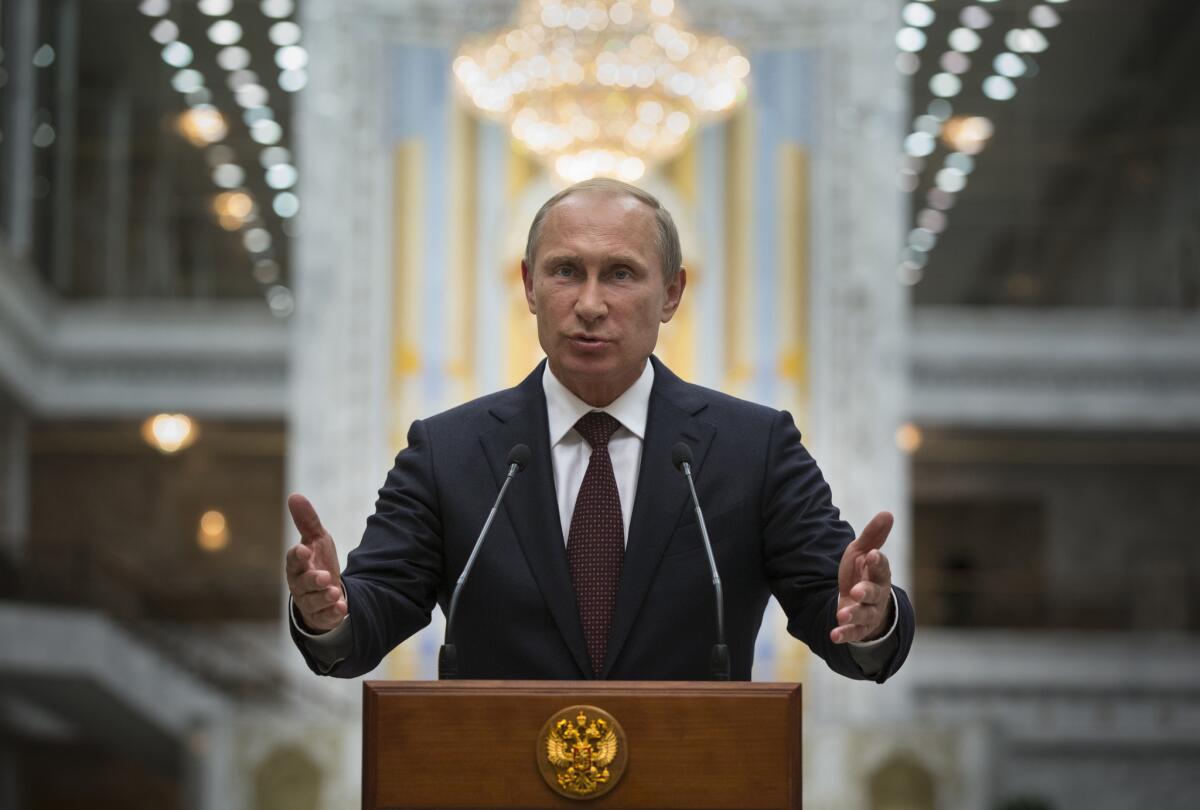Editorial: How to put Vladimir Putin in his place

When Russia began to interfere militarily in Ukraine earlier this year, President Obama said he didn’t view that country as a part of a Cold War chess game. Unfortunately, Vladimir Putin didn’t agree.
The crisis began when Putin wrongly perceived Ukraine’s understandable efforts to establish economic ties with Europe as a hostile act. It has continued through the Russian annexation of Crimea and the movement of Russian soldiers and equipment across the border to support pro-Russia secessionists. All the while, Russia has piously denied military involvement and called for a cease-fire that would not disarm the rebels in what Putin provocatively calls “new Russia.”
As a result, Russia’s claim of a new Cold War is becoming a self-fulfilling prophecy. European nations — including Germany, a key Russian trading partner — are reluctantly following the lead of the United States and threatening harsher sanctions. German Chancellor Angela Merkel said that even though sanctions would damage German companies, it is important to show Russia what happens when “you are allowed to shift borders in Europe and attack other countries with your troops.” Sanctions are needed, she said, to establish the principle that such actions trigger consequences.
Meanwhile, NATO has been preparing a Readiness Action Plan intended to reassure member states that used to be part of the Soviet empire that they would be protected in the event of Russian aggression. That heightened readiness is a response to apprehension in countries such as Estonia and Lithuania, which, like Ukraine, have large Russian-speaking populations and share a border with their aggressive neighbor. To dramatize NATO’s commitment to the defense of these countries, Obama scheduled a stop in Estonia on his way to this week’s NATO summit in Cardiff, Wales.
Ukraine isn’t a member of the North Atlantic Treaty Organization, which is one reason the U.S. hasn’t intervened militarily there and has even declined to provide the Ukrainians with weapons. For now at least, the better way to change Russian behavior is with economic sanctions that bite.
On Tuesday, in the latest display of diplomatic chutzpah, Russia’s foreign minister called on the U.S. to press the government of Ukraine to abandon its attempt to defeat the rebels militarily and to “transition to the political process.” In fact, the Ukrainian government long has been willing to negotiate new political arrangements that would offer considerable autonomy to pro-Russia regions. But such talks shouldn’t take place under siege by the forces of a foreign power.
Follow the Opinion section on Twitter @latimesopinion
More to Read
A cure for the common opinion
Get thought-provoking perspectives with our weekly newsletter.
You may occasionally receive promotional content from the Los Angeles Times.










